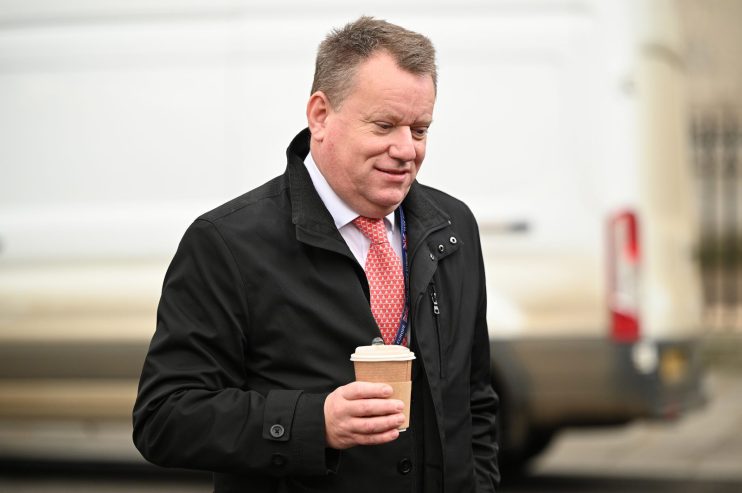Brexit: ‘Some progress’ made in trade talks this week, says UK negotiator

There has been “some progress” this week in UK-EU post-Brexit trade talks, according to UK chief negotiator David Frost.
Frost tweeted today that the two sides “largely have common draft treaty texts, though significant elements are of course not yet agreed” and that talks will restart today in Brussels.
This week’s soft deadline to get a deal done will not be met as talks are set to drag on into next week.
Time is running short for a deal to be closed before the UK leaves the EU’s single market and customs union on 31 December.
“We are working to get a deal, but the only one that’s possible is one that is compatible with our sovereignty and takes back control of our laws, our trade, and our waters,” Frost said.
“Either way, as Prime Minister Boris Johnson made clear on 16 October, people and businesses must prepare for the change that is coming on 31 December, most of which happens whether there is a deal or not.”
Irish foreign minister Simon Coveney told Sky News today that a deal is “very difficult but also very doable” and that the upcoming week is “move week”.
He also stressed the UK needed to remove parts of its controversial Internal Market Bill that breach the Brexit withdrawal treaty in order to get a deal done.
He said: “Even if we do get a new trade deal negotiated between both sides, if the British government is determined to continue with their Internal Market Bill, to reintroduce parts of that Bill that were removed in the House of Lords this week, then I think this is a deal that won’t be ratified by the EU.
Before the Open newsletter: Start your day with the City View podcast and key market data
“There is no way the EU will agree to ratify a new agreement if the British government is breaking the existing agreement which is not even 12 months’ old and [is] breaking international law by doing that.”
The bill was drawn up to allow for the government to override the Brexit Withdrawal Agreement if there was no trade deal agreed by 31 December when Britain leaves the EU’s customs union and single market.
Northern Ireland secretary Brandon Lewis admitted to MPs that if there was no trade deal the legislation would see the UK break international law “in a very specific and limited way”, with Johnson saying it was necessary in order to ensure trade between Great Britain and Northern Ireland remains unfettered.
The clauses in the bill will not be necessary if a trade deal is struck between the UK and EU.
Speaking to the BBC today, environment secretary George Eustice said: “On many areas progress has been made and texts have been drafted, there are sticking points around fisheries and around state aid rules that can be resolved.
“We’re not asking for anything miraculous, we’re asking for things that Norway and Canada already have, so it should be possible to reach that agreement.”
State subsidy regulations, which are a part of the level playing field talks, has been one of the largest barriers to a deal.
The EU wants the UK to mirror its regulatory regime for business subsidies, and other things like labour and environmental laws, in return for zero tariff trade.
However, the UK has made it clear that it does not want to be locked into EU state aid rules and wants to be able to have greater control of fiscal policy.
Brussels also started negotiations by demanding EU countries retain the same fishing rights to UK waters as they currently have, which Frost has said is untenable.